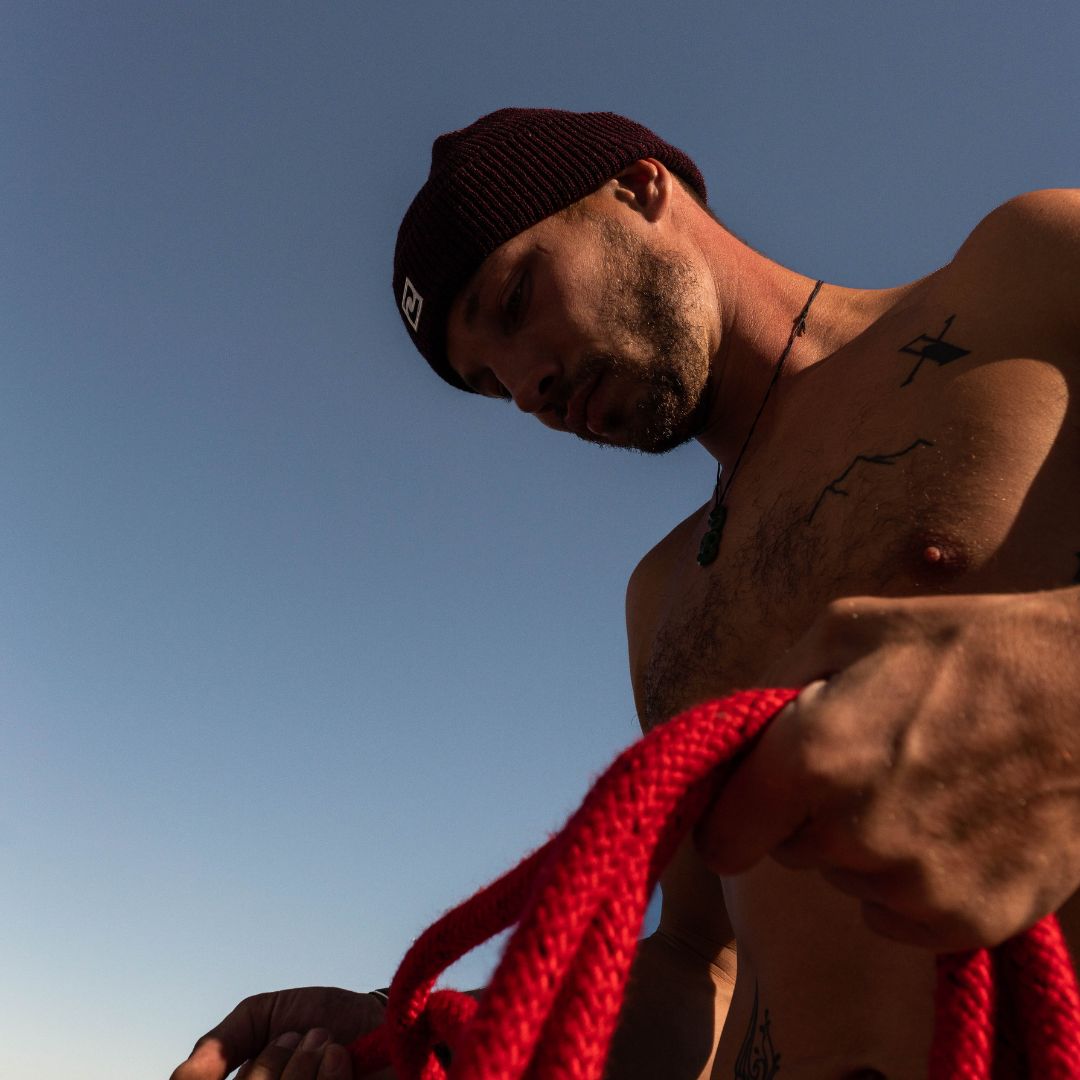Open water swimming in the UK in winter... hurts. There's no point pretending otherwise. With a water temperature of anything from minus to six degrees celsius, every step forward can bring pain and numbness to a new, reluctant part of your body. Your whole body tingles as you edge in, then in order to be safe - you count the minutes (minutes per degree) and out you get only to fumble with your jacket, your bag, your car keys.... so why on earth would you do it?!
As a brand and more importantly as/with friends and our community, we had grown up open water swimming over the summer months - both a pastime and a lifestyle. It's no secret that nature can heal you in ways we are only just scrapping the iceberg (seemed fitting given the theme). So why cold water swimming?
In short, despite that agonising cold, we discovered in the midst of covid 19 'lockdown', by accident, that it did us an enormous amount of good. During a pretty difficult time, we spent as much time as possible plunging into icy lakes, seas and rivers.
There were no gyms, no holidays, not much choice. Initially it appealed because there was a numbness to both the body and the mind, you couldn't think of anything else because you were trying to control your breathing and er.... not drown. After a while we realised it was more than that, we felt alive. It was an escape from the lockdown reality waiting for us on the shore.
The list below gives a quick overview of other benefits you could expect to find:
- It can lift brain fog - in other words, you don't have the headspace to think about much else. Your body and mind are alert. If you can't imagine it, imagine having a bucket of ice cold water tipped over your head.
- It gives you a natural high - Cold water swimming activates endorphins. This chemical is what the brain produces to make us feel good during activities. Cold water swimming is also a form of exercise, and exercise has been proven to treat depression. Cold water swimming brings us close to the pain barrier. Endorphins are released when we’re in pain, to help us cope with it.
- A good nights sleep - sleep quality is so important for good mental health. Open water swimming can be free, you can do it with as much kit as you prefer and venues are on the up across the UK. Fresh air and aching muscles are a great duo for drifting off faster and giving your body that outlet it needs.
- It improves your circulation - Cold water swimming flushes your veins, arteries, and capillaries. It forces blood to the surface and helps to warm our extremities. Repeated exposure adapts us to the cold.
- It reduces stress - Cold water swimming places stress on the body physically and mentally. Many studies have identified the link between cold water and stress reduction. Cold water swimmers become calmer and more relaxed.
- It is a great way of socialising and making new friends - There is a great sense of community and camaraderie amongst cold water swimmers. There is nothing that brings people together like facing a challenge and sharing the experience as a group.
Fancy giving it a go? As with any sport there are safety considerations, especially in the colder temperatures. Please make sure you follow the below guidance supported by the Open Water Swimming Society:
- Acclimatise - As the temperature drops, just keep swimming and your body will get used to the cold. This time of year is the perfect time to start cold water swimming. It will not be such a shock to go through the year then, as the sea temperature starts to fall.
- Be safe - Open water can be dangerous. Only ever swim where it is safe, and make sure you can enter and exit the water quickly and easily. Never swim on your own.
- Wear the right kit - Wear a swimming hat, or two, to help preserve body heat (we often wear our Ryde beanies). You can also wear neoprene gloves, booties, balaclava or a wetsuit – whatever you feel comfortable with.
- No diving - Do not dive or jump in unless you are used to the cold water. Cold water can cause gasping of breath and cold-water shock, which can be extremely dangerous.
- Know your limits - As the temperature drops, decrease the amount of time you spend in the water. In winter, swimmers often only swim for one or two minutes at a time. The general rule is that you can spend 1 minute per degree of water temperature in the water – obviously, you need to listen to your body too.
- Warm up slowly - Don’t have a hot shower. Hot water can cool your core and it can be dangerous. Instead, make sure you have plenty of warm clothes, wrap up well and have a hot drink.
And finally, stay safe and enjoy the benefits 😊




